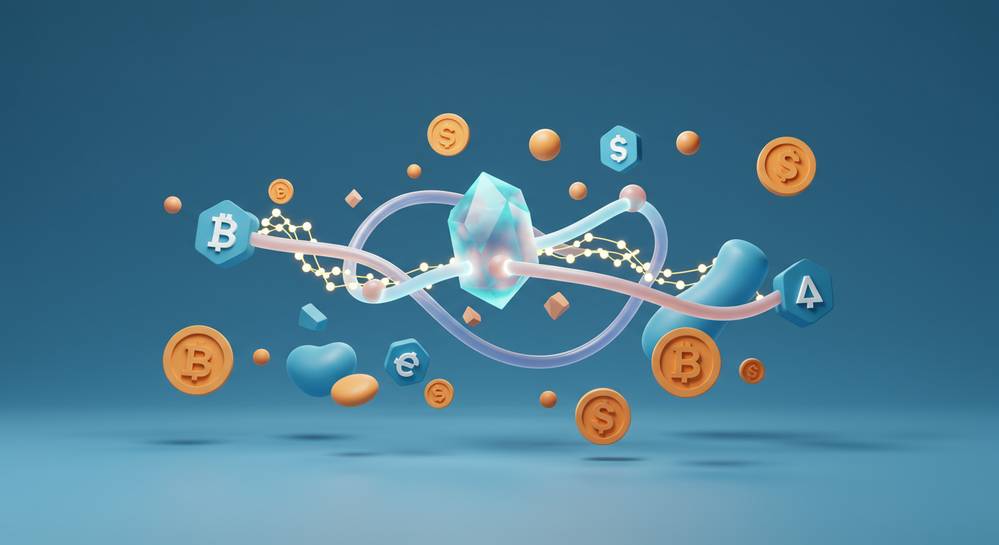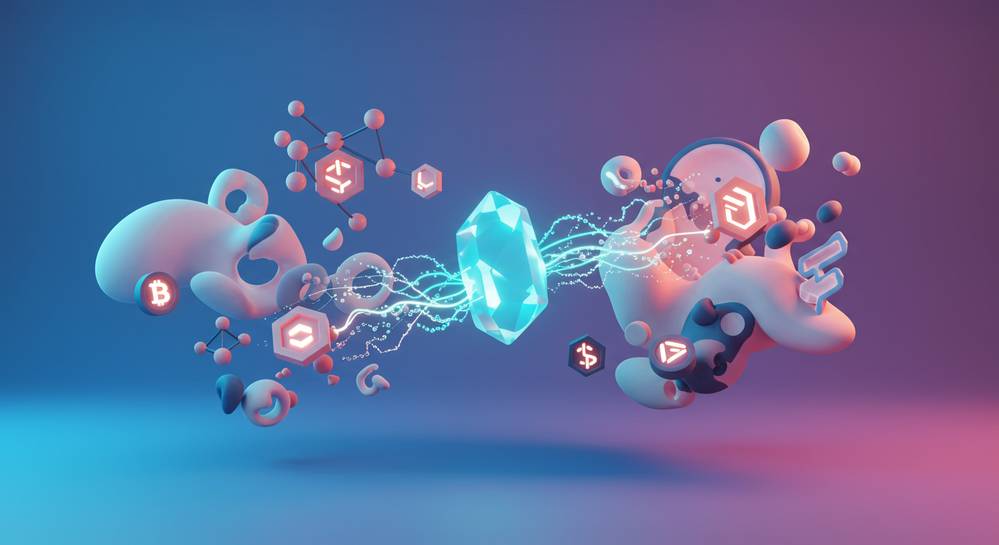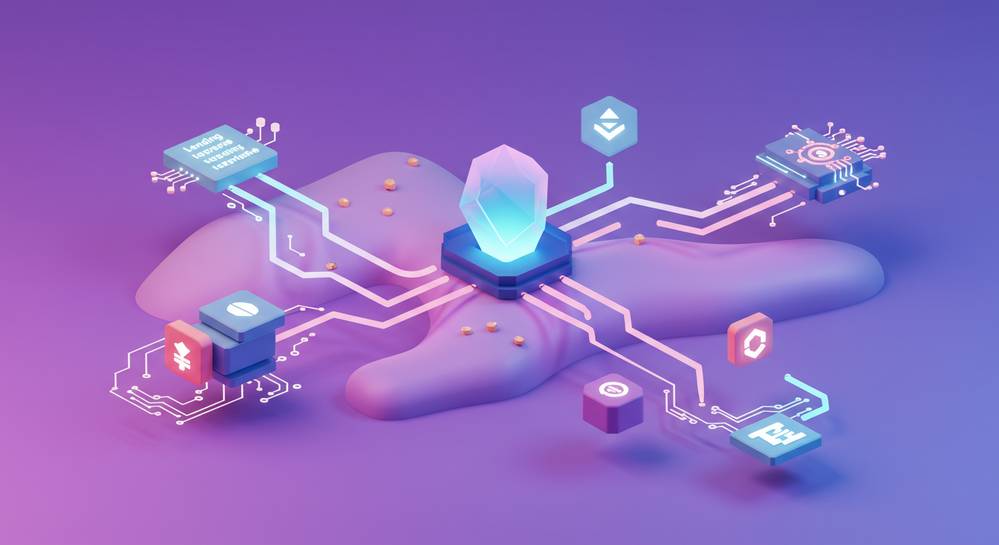Decentralized Finance (DeFi) has revolutionized the financial landscape, offering a myriad of services without traditional intermediaries. However, a fundamental challenge persists: smart contracts, the backbone of DeFi, are inherently isolated from real-world data. They cannot natively access external information like asset prices, weather conditions, or election results. This is precisely how oracles power DeFi platforms, acting as crucial middleware to connect the on-chain and off-chain worlds, thereby unlocking the true potential of decentralized applications.
The Oracle Problem in Decentralized Finance

Blockchains are inherently isolated, unable to access real-world data directly. This “oracle problem” severely limits smart contract utility. Oracles solve this by acting as secure, decentralized data feeds, connecting off-chain information to on-chain applications. They are the essential infrastructure that truly empowers DeFi platforms.
Enabling Complex DeFi Applications
Oracles provide the critical, real-time data necessary for sophisticated decentralized finance protocols. Without them, DeFi would remain a niche of simple token swaps. They unlock the potential for complex financial instruments to operate autonomously and reliably on the blockchain.
- Lending and Borrowing: Oracles deliver accurate asset prices for collateral valuation and liquidation triggers. This prevents systemic risk.
- Synthetic Assets: They maintain the peg of synthetic tokens to real-world assets like stocks or commodities.
- Decentralized Derivatives: Oracles provide settlement prices for futures and options contracts.
- Blockchain Gaming and Insurance: They feed verifiable outcomes for game logic or real-world events for policy payouts.
By supplying tamper-proof external data, oracles transform static smart contracts into dynamic, responsive financial engines. This continuous, reliable data flow is fundamental to DeFi’s growth and its ability to offer services competitive with traditional finance.
How Oracles Bridge On-Chain and Off-Chain Worlds

Oracles function as secure, decentralized bridges, feeding vital external information into blockchain smart contracts. This process is fundamental to how oracles power DeFi platforms. They achieve this by querying off-chain data sources, validating the information, and then transmitting it onto the blockchain. This secure data flow enables the complex financial operations that define decentralized finance.
Ensuring Data Integrity and Reliability
The integrity of off-chain data is paramount for DeFi. Oracles employ sophisticated mechanisms to ensure the information they deliver is accurate and tamper-proof. This multi-layered approach builds trust in the data powering critical financial applications.
- Data Aggregation: Robust oracle networks gather data from numerous independent sources. This multi-source strategy significantly minimizes manipulation risks and enhances data reliability. For instance, a price oracle aggregates data from various major cryptocurrency exchanges for a more resilient price feed.
- Decentralized Verification: Advanced oracle solutions utilize decentralized networks of “node operators.” These operators are incentivized to provide accurate data and face penalties for submitting incorrect information. This distributed verification strengthens data trustworthiness for smart contracts.
- Secure Delivery: The validated data is securely transmitted to the target smart contract. This often includes cryptographic proofs of its origin and authenticity. Understanding the broader undefined highlights the importance of such security.
Key Oracle Use Cases Across DeFi Ecosystems

Oracles are indispensable, enabling a wide array of decentralized finance applications by providing crucial off-chain data. They are fundamental to how oracles power DeFi platforms, extending blockchain capabilities far beyond simple transactions. Their diverse applications underpin the functionality of the entire DeFi ecosystem.
Powering Diverse DeFi Applications
The versatility of oracles allows them to serve critical functions across various DeFi protocols. Each application leverages accurate, timely external data to execute complex financial logic reliably. This broad utility demonstrates their foundational role in decentralized finance.
- Decentralized Lending and Borrowing: Protocols like Aave and Compound rely on price oracles. These assess collateral value in real-time, ensuring loans are adequately backed and enabling timely liquidations.
- Algorithmic Stablecoins: These stablecoins maintain their fiat peg using smart contracts. Oracles feed accurate fiat exchange rates, allowing dynamic supply management. For insights into market trends, consider undefined.
- Derivatives and Synthetic Assets: Platforms offering decentralized derivatives or synthetic assets, such as Synthetix, utilize oracles. They provide prices for underlying assets, including cryptocurrencies, traditional stocks, and commodities, enabling on-chain trading.
- Decentralized Insurance: Blockchain-based insurance protocols depend on oracles to verify real-world events. These events, like flight delays or crop failures, trigger automated policy payouts.
Ensuring Data Integrity and Security in Oracles
Given their critical role, the security and integrity of oracles are paramount to how oracles power DeFi platforms. A compromised oracle could lead to devastating financial losses within decentralized finance protocols. Therefore, several robust mechanisms are employed to ensure data reliability and prevent malicious attacks.
Mechanisms for Oracle Security
The continuous evolution of oracle technology focuses heavily on enhancing trust and resilience. These security measures are crucial for maintaining the stability and trustworthiness of the entire DeFi ecosystem.
- Decentralization: Distributing data sourcing and validation across multiple independent nodes significantly reduces reliance on a single point of failure. This makes the system more resistant to censorship or targeted attacks.
- Reputation and Staking: Many oracle networks implement economic incentives. Node operators stake collateral that can be slashed if they provide incorrect or malicious data. A strong reputation system further encourages honest behavior and data accuracy.
- Cryptographic Proofs: Advanced oracle solutions utilize cryptographic proofs, such as authenticated data feeds. These ensure the data’s origin and integrity, verifying it has not been tampered with since its source. Understanding these systems is key to undefined in a broader digital context.
In essence, oracles are indispensable for the continued evolution and reliability of DeFi. They address the critical need for external, verifiable data, allowing smart contracts to execute complex financial logic based on real-world conditions. Without these secure and decentralized data bridges, the expansive ecosystem of lending, borrowing, stablecoins, and derivatives in DeFi would simply not be possible. As the DeFi space continues to innovate, the role of robust, transparent, and resilient oracle networks will only grow in importance, solidifying their position as the silent architects of a truly decentralized financial future. Explore more insights at Financial Insight Daily.
